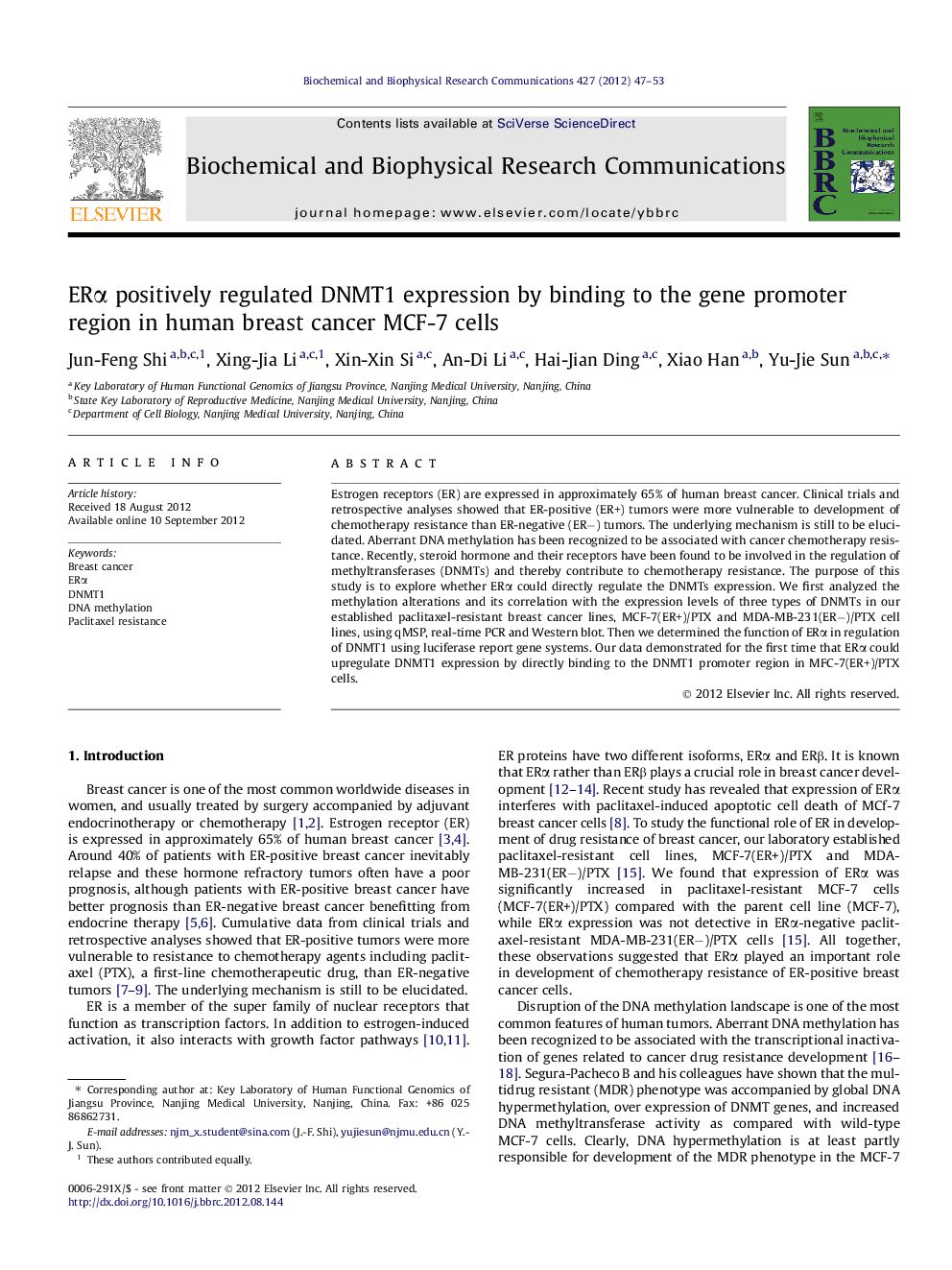| Article ID | Journal | Published Year | Pages | File Type |
|---|---|---|---|---|
| 1929474 | Biochemical and Biophysical Research Communications | 2012 | 7 Pages |
Estrogen receptors (ER) are expressed in approximately 65% of human breast cancer. Clinical trials and retrospective analyses showed that ER-positive (ER+) tumors were more vulnerable to development of chemotherapy resistance than ER-negative (ER−) tumors. The underlying mechanism is still to be elucidated. Aberrant DNA methylation has been recognized to be associated with cancer chemotherapy resistance. Recently, steroid hormone and their receptors have been found to be involved in the regulation of methyltransferases (DNMTs) and thereby contribute to chemotherapy resistance. The purpose of this study is to explore whether ERα could directly regulate the DNMTs expression. We first analyzed the methylation alterations and its correlation with the expression levels of three types of DNMTs in our established paclitaxel-resistant breast cancer lines, MCF-7(ER+)/PTX and MDA-MB-231(ER−)/PTX cell lines, using qMSP, real-time PCR and Western blot. Then we determined the function of ERα in regulation of DNMT1 using luciferase report gene systems. Our data demonstrated for the first time that ERα could upregulate DNMT1 expression by directly binding to the DNMT1 promoter region in MFC-7(ER+)/PTX cells.
► Aberrant DNA methylation was associated with paclitaxel therapy resistance. ► ERα binds to DNMT1 promoter and positively regulates its expression. ► Elucidate the role of ERα in paclitaxel resistance by regulating genomic DNA methylation. ► Explore new possibility to solve chemotherapy resiatance of breast cancer.
